Riley Adams's Blog, page 182
February 19, 2012
Nice Bloggers Don't Get the Girl
by Steven Lewis, @Rule17
 Being raised English presented considerable disadvantages to me as a writer and a blogger. The greatest of them was the English pride in understatement and self-deprecation.
Being raised English presented considerable disadvantages to me as a writer and a blogger. The greatest of them was the English pride in understatement and self-deprecation.
Promoting my blog and my books has required me to re-educate myself. It hasn't been easy to unprogram a lifetime's teaching. Only the other day my wife took me aside after I was asked how sales of my new book Hot Silver - Riding the Indian Pacific were going.
"I'm no Bill Bryson," I'd said.
With a stern look she pointed out that I was number three in the Amazon bestseller list for my category. Why on earth didn't I tell people that, she asked. Well now I have and that's what I'm learning to do with my blog as well.
Taleist runs under the slogan "Helping writers become published authors". It's true, that's what the site is about, but it seems wrong to shout about it. I was a long time before I put the tagline up.
The truth is that nice bloggers don't get the reader. You have to talk about your virtues and strengths. You need to tell people what your site is good at because you can't count on them investing the energy in finding out themselves. You need to back yourself, to become your cheering section.
Certainly word-of-mouth is crucial, especially people using their social networks to share your content. But you set the tone. Your self-belief leads others to believe in you.
The trick is to find the line between confident and obnoxious. Whatever our cultural background there is a line between someone we admire for his or her self-confidence and someone whose arrogance grates. That line is in a different place for everyone so you're also going to have to grow a thick enough skin to cope with that.
You won't be loved by everybody but it's better to loved passionately by a few than to be a source of indifference to many.
Some of the things I've learned to do to promote myself assertively are:
To have an elevator pitch. As well as "helping writers become self-published authors" Taleist is "well-regarded internationally by self-publishers". Both these statements are true but previously I wouldn't have said them out loud, I'd have hoped someone else would say it or you'd find it out some other way. Having those phrases ready in the wings means I don't need as much mental energy to say them out loud when the opportunity arises. (Note I still won't say I'm helping authors or well-regarded.)
To use testimonials. I'm lucky enough to have found some credible people who like what I'm doing. When they say something nice about the site/the books/me, I ask to use their words. That way I don't have to assert these things myself and it doesn't look like I'm the only person who thinks I'm useful or I write well.
To ask for what I want. No reader is as committed as the reader who has subscribed to your blog by email. I work hard to build my subscriber list, including having a pop-up window that appears on the site and asks visitors to sign up. Many people instinctively recoil at the idea of these windows. Me, too! How obnoxious they are. But they work: I've had triple digit percentage growth in my mailing list since introducing them. If you don't ask, you don't get.
I haven't got all the answers and there are things I still need to work on. I think Copyblogger is essential reading, for instance, but sometimes I find their tone relentless and their content contrived. Their success suggests, however, that they're onto something!
Most of all, after writing for newspapers and magazines for 15 years and having seven books on Amazon, I'm surely entitled to say "writer" when asked what I do. So why can't I? Yet.
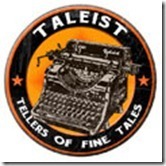 Steven Lewis writes the Taleist self-publishing blog, where you
Steven Lewis writes the Taleist self-publishing blog, where you
can sign-up for his social media check-up, a free email course showing you easy ways to make sure you're using social media to maximum effect in promoting your books.
February 18, 2012
Twitterific
by Elizabeth S. Craig, @elizabethscraig
Below are the writing-related links I tweeted last week.
The free Writer's Knowledge Base search engine, designed by software engineer and writer Mike Fleming, makes all these links (now over 14,000) searchable. The WKB recently celebrated its one-year anniversary.
 Sign up for the free monthly WKB newsletter for the web's best links and interviews:http://bit.ly/gx7hg1
Sign up for the free monthly WKB newsletter for the web's best links and interviews:http://bit.ly/gx7hg1
The best structure for your book: http://bit.ly/wNBEjW @originalimpulse
Storytelling & Literary Techniques: http://bit.ly/yLESh2 @writersdigest
Facebook danger, smutty & genre e-reading, library ebook lending update, ind. news & views from @Porter_Anderson: http://bit.ly/AqoK4O
The problem with free: http://bit.ly/zCLzUh @kristenlambTX
Do Blog Tours Sell Books? http://bit.ly/wH83ZX @roniloren
Violence and Gore in Fantasy: http://bit.ly/AugebL @AmyJRoseDavis
Tips for good book endings: http://bit.ly/z02UYr @TaliaVance
Love Story Elements: http://bit.ly/zuVWMF @AlexSokoloff
5 ways to bust through your freelance fears: http://bit.ly/ycEDGW @stephauteri for @MichelleRafter
A notice to publishers from a librarian: http://bit.ly/zge5nk @TheLiB
20 Pairs of One-Word and Two-Word Forms: http://bit.ly/xzjwTV @writing_tips
Why people use ghostwriters: http://bit.ly/wRprfK @storykim
How Should Writers Research? All at Once or As Needed? http://bit.ly/AheLTV @JodyHedlund
Stay with the agent or the agency when your agent moves? http://bit.ly/yBLZ60 @JordynRedwood
The Role of Editors: A Writer's Viewpoint: http://bit.ly/ArED4J
How to Create and Host a Blog Carnival: http://bit.ly/wUZVWm @problogger
What Makes You Feel Legitimate? http://bit.ly/ABroQO @jamigold
Digital textbooks challenge from US government: http://bit.ly/xAymUW @JohnP_Education
The Key to Distraction-Free Writing: http://bit.ly/xGebQ0 @jeffgoins
Set Up Your Author Pinterest Profile In 10 Easy Steps: http://bit.ly/AsaxzM @authormedia
Quick Tips for Improving Your Blog's Navigation: http://bit.ly/A7LiaO @pushingsocial
Dealing with chronological breaks in your story: http://bit.ly/yyi1kS @juliettewade
What Non-Fiction Authors Can Teach Novelists: http://bit.ly/y9dFbN @KMWeiland
Varying sentence length: http://bit.ly/xaVjNc
7 Truths About Writers: http://bit.ly/xhgfnu @thecreativepenn
Are online ads a good choice for authors? http://bit.ly/ytI39P @Beth_Barany
Editor Alan Rinzler with tips for writing genre crossovers: http://bit.ly/yg2syQ
Critiques, Another Angle: http://bit.ly/yEN2Pz @HeatherMcCorkle
Are Tablet Computers Right For Writers? http://bit.ly/zjjYiW @ChandlerWrites
The Nuts and Bolts of: Impressions, Clicks and Free: http://bit.ly/zMVZeO @JenTalty
Ways writers jolt readers out of the story: http://bit.ly/wwdOAJ @EdieMelson
Artistic Freedom, Fame & Finishing, No Matter What: http://bit.ly/w847mq @Aristonian for @the99percent
A Quiz on the Treatment of 75 Compound Words: http://bit.ly/Alvxmb @writing_tips
The stories inside our story: http://bit.ly/ym3wr5 @storyfix
Print Books: The New Vanity Publishing? http://bit.ly/ybLdFC @thecreativepenn for @jfbookman
Non-traditional ways to market: http://bit.ly/x49wy0 @LauraPauling
Permanence, Capitalists, and Ebooks: http://bit.ly/A8lxMJ @scholarlykitchn
Using the Evil Overlord List to Write More Interesting Villains: http://bit.ly/w9vnmt
Keeping Track of Character Knowledge: http://bit.ly/zh3F2S @Janice_Hardy
Writing + baby = ? http://bit.ly/xgv5a8 @thatleila
Making time for : http://bit.ly/wv3GEq @jodicleghorn
The Ins and Outs of Critique Groups: http://bit.ly/xOqZSO @loislavrisa
4 Tips to Avoid Blogging Burnout: http://bit.ly/zfgr3g @krissybrady
10 Ways to Improve Your Online "Likability Quotient": http://bit.ly/A1A8wN @KristenLambTX
Amazon inheriting the Earth – how does this affect their authors? http://bit.ly/yiW2C6 @behlerpublish
An Agent Explores the Difference Between Young Adult And Middle Grade: http://bit.ly/xW7A4S
Planting the Hook: Getting Readers Past the Opening Page: http://bit.ly/wObSVq @janice_hardy
2 views of video game writing: http://bit.ly/ze7Vo6
How to Effectively Create More Time to Write: http://bit.ly/wZJbRO @KrissyBrady
A link roundup on and delivering speeches: http://bit.ly/xE0CXk @speechwriterguy
Hulk Eat Bacon--The Effect of Mood-Altering Substances on the Creative Mind: http://bit.ly/wJdnIP @gripemaster
75 Synonyms for "Hard": http://bit.ly/zj4YRs @writing_tips
The Complete Guide to Self-Publishing a Book that Doesn't Suck: http://bit.ly/yl6U3d @jeffgoins
Will Print Books Become Obsolete? http://bit.ly/zdEvab @ava_jae
Tips for headline writing: http://bit.ly/zD7Ptd @JulieBMack
Relief for the Writing Rules Obsessed: http://bit.ly/zHXFgw @keligwyn
How to become a writer who matters: http://bit.ly/AfzudK @krissybrady
Tips for dealing with rejection: http://bit.ly/w9ENSS
Make sure your book's setting isn't missing: http://bit.ly/AC9FAp @KMWeiland
What should writers blog about? http://bit.ly/yPBNmk @annerallen
Being a Success, Without Being a Bestseller: http://bit.ly/zyLr1w @DanBlank
Prologues: please use responsibly: http://bit.ly/zoQfy4 @dirtywhitecandy
Links for locating book reviewers: http://bit.ly/xEk6PU @DebraPurdyKong
How to Have a Successful KDP Select Campaign: http://bit.ly/zjY1Cj @TweetTheBook
Is Your Author Photo Sending the Right Message? http://bit.ly/zufXqN @KMWeiland
Tips for successful scene execution: http://bit.ly/zW3Z0s @rebeccaberto
Descriptions that pack a punch: http://bit.ly/wXo5W8 @PBRWriter
7 Tactics for a Successful Guest Post: http://bit.ly/zRHW7c @BlogTyrant
When is it all right to call an agent? http://bit.ly/xpdB9J @rachellegardner
Both Convergent and Divergent Thinking are Necessary for Creativity: http://bit.ly/z3Y9a3 @creativitypost
4 Reasons It Pays For Songwriters To Be Patient: http://bit.ly/ABwuK9 @cliffgoldmacher
What's the Right Price for an E-Book? http://bit.ly/wrmrsT
Make Your Own Luck In Social Media: http://bit.ly/zBx8fo @AlexisGrant for @thecreativepenn
A quiz about missing connections in our writing: http://bit.ly/A3CvV8 @writing_tips
The importance of keeping in touch with our readers: http://bit.ly/xP0iNT
Love means never having to say you're sorry (to your characters): http://bit.ly/w7vzek @SouthrnWritrMag
A New Approach–The Concept Critique: http://bit.ly/wvjfur @KristenLambTX
What a communications workshop can teach you about writing: http://bit.ly/zMCH3t @CAMorganti
Creativity Tune-up: http://bit.ly/wVkScO @bookemdonna
What Moves You The Most Right Now? Go With It. http://bit.ly/A7vndq @OllinMorales
A publisher on social media: http://bit.ly/ydinKH
The benefits of not planning a world: http://bit.ly/zlnpZD @Mazarkis_W
Why (not) tell the story in present tense? http://bit.ly/yYc0Xf @juliettewade
Are Sub Genres Digital Publishing's Secret Weapon? http://bit.ly/wfgOZf @ebooknewser
Knowing What to Capitalize: http://bit.ly/w1Orio @janice_hardy
Ebook Pricing: Why 99 Cents Might Be a Mistake for You: http://bit.ly/zBLR5u @goblinwriter
Promoting your book--what *not* to do: http://bit.ly/wdNnMJ @BryanThomasS
Reasons Why Some Books Never Sell: http://bit.ly/zBRVrl @robeagar for @writersdigest
Why Being a Jack of All Trades Isn't All It's Cracked Up to Be: http://bit.ly/wq5MS5 @jeffgoins
Self-destructive characters in crime fiction: http://bit.ly/zs4C5d @mkinberg
Happy Valentine's Day, Hogwarts Style: http://bit.ly/wbOvhi @HP4Writers
10 Ways to Love a Writer: On Valentine's Day and Forever: http://bit.ly/yeIMsQ @ainegreaney for @womenwriters
Why Romances Are Valid Literature: http://bit.ly/wiVrgK @JodyHedlund
A few tips for writers planning romantic evenings: http://bit.ly/wC0296 @MistyMassey
Literary Pick-up Lines for Valentine's Day: http://bit.ly/y9Sae4 @galleycat
10 Lies to Twist a Love Story: http://bit.ly/AcKvMP @CherylRWrites
How To Write A Kissing Scene...Valentine Edition: http://bit.ly/xlqt9P
Showing Valentine's Day Love to Writers: http://bit.ly/A96mTZ
Feeling the Love: http://bit.ly/xBoEvC
5 things 1 writer learned from Shirley Jackson: http://bit.ly/A2xHv5 @victoriamixon
Answers to writers' legal questions: http://bit.ly/yx2ArU @DIYmfa
How to Overcome Writer's Block: http://bit.ly/xjqUQU
Writing and the Ugly Duck Syndrome: http://bit.ly/wjqhTB @mooderino
Writer Confidence—Too Much or Too Little: http://bit.ly/xBBQ8u @pattyjansen for @BryanThomasS
6 Tips for Creating a Blogged Book Manuscript: http://bit.ly/zw8Pgl @NinaAmir
Book Publishing and ISBNs … Do You Need Them? http://bit.ly/AmfgYB @mybookshepherd
50 Synonyms for "Idea": http://bit.ly/xUhX1T @writing_tips
The Most Important Part of the Creative Life: http://bit.ly/wef5BQ @jeffgoins
7 Free E-Books for Writers: http://bit.ly/A1n3Ds @janefriedman
Writing Lessons from The Hunger Games: Stakes and Characterization: http://bit.ly/xogWpv @4kidlit
5 Reasons to Embrace the Brave New World: http://bit.ly/xkGxWw @rachellegardner
6 Tips To Resuscitate a Dying Author Blog: http://bit.ly/yz2zQF @ChuckSambuchino
Self-Publishing Is Easy (and Other Myths): http://bit.ly/xyGV62 @talliroland
A list of great blogs for writers to follow: http://bit.ly/xHJ8CU @robertleebrewer
Making the Most of Endorsements: http://bit.ly/xbjjVu @MuseInks
Book Covers: Are They Important in the Digital Age? http://bit.ly/wCh3ZZ @jodyhedlund
"Speechtags are of the Devil," he said: http://bit.ly/yVWWMf @janice_hardy
Why Agents Edit: http://bit.ly/y3YhDR @bookendsjessica
One Size Fits Some: http://bit.ly/A04X5P @eMergentPublish
8 Quick Tips for Writing Bullet Points People Actually Want to Read: http://bit.ly/zKaTlI @copyblogger
Who's Whose: More Help With Pronouns: http://bit.ly/wTlDRO @write_practice
Confessions of a Newbie Independent Bookseller: http://bit.ly/wYb7OI @deadwhiteguys
Fuel your writing by penning a manifesto for your book: http://bit.ly/xIVImA @originalimpulse
Tips for Finding inspiration: http://bit.ly/wXWGIV
Suspended Perceptions: http://bit.ly/wBT1h1 @Ravenrequiem13
Fast Drafting: A Word Count Builder: http://bit.ly/wkrqR8 @LynnetteLabelle
9 truths about ebook publishing: http://bit.ly/xbPygF @thefuturebook
Comics to relieve writing stress--from @inkyelbows: http://bit.ly/zIUg4K & http://bit.ly/xHUToR & http://bit.ly/yP4tic
It's tough for writers to escape from stories: http://bit.ly/x9qGFZ @TamarMek
The role of attorneys in crime fiction: http://bit.ly/zw0DR9 @mkinberg
A different take on copyright from author James Hutchings for @MasonCanyon: http://bit.ly/zR5ukd
5 Hidden Benefits of Writing Slowly: http://bit.ly/yOcFBs @ollinmorales for @thecreativepenn
How an agent evaluates book blogs: http://bit.ly/xblfmH @SaraMegibow
Crawling Into a Writer's Cave: http://bit.ly/AhdpnY
How To Jumpstart Your Creative Career in a Bad Economy: http://bit.ly/yePBir @the99percent
16 Misquoted Quotations: http://bit.ly/zRaenf @writing_tips
8 Reasons Your Self Published Novel Won't Sell: http://bit.ly/yy8lzK @ajackwriting
8 Things That Surprised 1 Writer About Book Launches: http://bit.ly/AvZXA4 @Julias__Child for @BlurbisaVerb
Charles Dickens and the Facebook generation: http://bit.ly/xbr559 @Salon
6 Ways to Energize Your Writing Naturally: http://bit.ly/xN1ldd @ChrystleFiedler
5 Tips on Plot Twists: http://bit.ly/wkYK5r
Interesting discussion in the comments: Fiction and Social Justice ~ Can They Coexist? http://bit.ly/Av5Y06 @PassiveVoiceBlg
Defaulting to the Protagonist: http://bit.ly/yUWxyB
To Champion Worthwhile Books: http://bit.ly/wrqADT @rachellegardner
Music that helps with the dreaming stage of a novel: http://bit.ly/Ae5WWn @reclusivemuse for @byrozmorris
Disdain for authors?, Amazon absence, relevance through SEO, & other thoughts from/on #ToC from @Porter_Anderson: http://bit.ly/wd8yMD
Writing on the Ether by @Porter_Anderson features @SourceFabienne @KatMeyer @diannadilworth @bsandusky @cjoh @ikert http://bit.ly/wd8yMD
February 16, 2012
Mystery Writer in the Family. Blogger in the House.
by Anora McGaha, @anorawrites
As a girl, I started with Nancy Drew. Loved her curiosity. Her intelligence. Her courage.
But I would get scared and have to close the book. Wait until another time.
Read in the living room when others were around.
Couldn't stay away long though. Always wanted to know what happened next.
Balancing fear and curiosity. Curiosity and fear.
Before grade school was done, I put mysteries aside. For decades. Just didn't need to risk the tension of fear.
Then my aunt wrote a mystery. Her first book. And another, and another. She found what she called a "sleezy" publisher who paid mere pennies a sale, but it was a start. The Trouble With... series was launched.
A novelist in my own family. Leading the way. I had to pick up a copy and risk the fear.
Murder always gave me the creeps. It's horrific. In the news every day. Why would anyone want to take it on for leisure?
C. Crespi, as she called herself at the time, wrote light mysteries. She named her characters after her pets. She drew from experiences in the big Apple. Wove her sweetheart into the tales.
They were filled with fascinating details about life in the city, a quirky detective, with an international background like her own. Yes there was always a murder, but most of them weren't scary. The stories were delightful.
Getting an agent was awful though. So many unanswered letters and emails.
Disappointments. Until the one acceptance that made it all worthwhile.
I was grateful to hear the reality of being a writer. Not sure I'd have the stomach for it.
Camilla broke into the big time - selling a few books to a major publisher, Harper Collins. Hardbacks. Book tours. Publicist. The works.
I was so proud. Excited too because she was paving the way for my own writing. Not by opening doors, but by doing it, simply showing it could be done.
Her writing stepped up. She wrote a psychological thriller. The Price of Silence was literary fiction. A gripping story. Stirring. Questions that beg an answer from the first page. Catch a reader by the first paragraph and keep us wanting answers until the end, and, beyond.
Having an agent for one book doesn't mean an agent for every book. The agony of the search. Finally one. A sale to Soho Press. Now publishing under her own name, Camilla Trinchieri.
Then presto. Price sold across the ocean. In Italy, where her father, my grandfather
was from. Where she had lived for years, and I too, for a few.
Il prezzo del silenzio. A direct translation of her title. Marcos and Marcos press.
Completely different cover. Picking up on the Chinese thread. A launch in Rome, Florence. Sardinia. Radio interviews. Magazine interviews.
An American. A New Yorker. Translated into Italian. Fluent in Italian, half Italian really. Welcomed. Celebrated. A prodigal daughter.
I had just discovered the power of blogging in 2008. Excited about what was possible, I launched a publicity blog for her.
She wasn't into blogging. She stays focused on writing books. (A good focus for a writer, one I should take a lesson from.) But I scoured the Internet for everything I could find about her American edition, and then scoured the Italian Internet for everything in Italian about her. Google.it shows different results than Google.com.
Hours and hours of wonderful work, researching every result of thousands
month after month. Discovering all kinds of reviews and comments. Discovering that her books were sold online in dozens of countries around the world. South Africa. India. England. Australia. Germany. France.
After adding a Feedjit widget on the sidebar, we could see that visitors were landing on the blog from all over the world. Whether or not any books were sold, people were visiting, and the posts were a wonderful public record of all her events and all the reviews she'd received.
Mysteries are still not my cup of tea. Too scary, still. But I know this much. Every book could take a lesson from the genre. Hook your reader with intrigue from the start, tantalize with unanswered questions, leave subtle clues that sneak up and surprise us, and leave us dying to know more.
 Anora McGaha
is a poet, non-fiction writer, author of
Social Media for Business
and personal essays in three anthologies. She is the editor of Women Writers, Women Books at
www.booksbywomen.org
.
@anorawrites
is her writing handle on Twitter, and
@womenwriters
is the handle for her online literary magazine for women writers.
Anora McGaha
is a poet, non-fiction writer, author of
Social Media for Business
and personal essays in three anthologies. She is the editor of Women Writers, Women Books at
www.booksbywomen.org
.
@anorawrites
is her writing handle on Twitter, and
@womenwriters
is the handle for her online literary magazine for women writers.
February 15, 2012
6 Ways to Energize Your Writing Naturally—by Chrystle Fiedler
by Chrystle Fiedler, @ChrystleFiedler
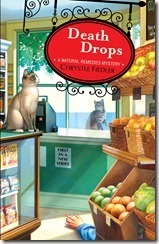 It's fun to take a break from writing and visit Elizabeth on her blog! Thanks Elizabeth! I thought it would be fun to write about natural remedies since my new book Death Drops: A Natural Remedies Mystery features a holistic doctor who dispenses natural cures. I also thought that readers might be interested in natural ways to boost energy when it comes to writing.
It's fun to take a break from writing and visit Elizabeth on her blog! Thanks Elizabeth! I thought it would be fun to write about natural remedies since my new book Death Drops: A Natural Remedies Mystery features a holistic doctor who dispenses natural cures. I also thought that readers might be interested in natural ways to boost energy when it comes to writing.
I don't know about you ut the best time for me to be productive and hopefully brilliant! is in the morning from 9 to noon. But once I have lunch, I feel less energetic. However, if I'm under a deadline I need to power through less productive times and write throughout the day. That's when I turn to my favorite natural remedy – coffee! I buy mine from 7-11 because home brewed just isn't strong enough.
I interviewed a doctor at Harvard Medical School years ago for an article and he told me that coffee at 7-11 and Dunkin' Donuts is 8 times as strong has home brewed! Not only does coffee give me a much needed pick-me-up, I've found it also boosts my mood (recent research shows that coffee can help with mild depression) and helps me see things more clearly. In addition, these natural cures can make you more alert and focused, with writing or whatever you need to do!
1. Sip small amounts of chilled water every 30 minutes. Studies show that when you consume small amounts of chilled water every 20-30 minutes during the day, it sends a clear and immediate signal to your brain to increase alertness and energy.
2. Smell peppermint. According to a study in the North American Journal of Psychology drivers had more energy when exposed to this scent. Peppermint increases alertness and decreases fatigue. Chew a nice strong peppermint gum or peppermint mints while you write or drive to decrease fatigue and increase alertness.
3. Use acupressure on your outer ears. Applying pressure to acupressure points all along the outer ear helps to clear the head, gets rid of dull pain above the neck and charges up your entire energy system. Just take your thumb and first finger and go up and down the entire outer ear two or three times and give it a good brisk rubbing.
4. Drink green tea. Green tea has some energizing caffeine, but it also contains theanine, an amino acid that has a stress-reducing effect on your brain. It calms you while giving you mental clarity, leaving your mind clear and sharp and alert.
5. Inhale Eucalyptus or spearmint essential oil. The nose is the only part of your brain that extends to the outer environment is your sense of smell so it's very charged. Volatile oils such as eucalyptus or spearmint stimulate a part of your brain that triggers alertness. For a natural pick-me-up place a few drops of eucalyptus or spearmint essential oil on a tissue and inhale deeply.
6. Eat Dark Chocolate. Although it's weaker than caffeine, the chemical theobromine in chocolate is a mild stimulant. Chocolate also contains phenylethylamine, (PEA) which is a feel good mood elevator. Choose a high quality, imported dark chocolate with 70% or more cocoa content. It has less sugar and its rich flavor will satisfy you with less. Aim for 1 ounce of dark chocolate a few times a week.
What is your writing routine?
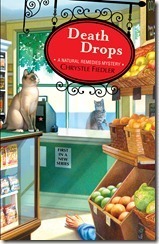 About Death Drops: A Natural Remedies Mystery:
About Death Drops: A Natural Remedies Mystery:
Dr. Willow McQuade, N.D., a twenty-eight-year-old naturopathic doctor specializing in natural remedies, has decided to take sabbatical and visit her Aunt Claire, the owner of Nature's Way Market and Cafe in idyllic Greenport, Long Island. But the idea of rest and relaxation is quickly forgotten when Willow arrives from a morning meditative walk to discover her Aunt Claire dead in the store, a strange almond-like smell emanating from her mouth and a bottle of flower essences by her side.
Despite her Zen nature and penchant for yoga, Aunt Claire had a knack for getting into confrontations with folks. An activist, she held weekly meetings for different causes every week in the store. The police want to believe the death is accidental—but Willow thinks she may have been poisoned.
Things get worse when Aunt Claire's valuable recipe for a new natural age-defying formula, Fresh Face, is stolen during a store break-in, and an attempt is made on Willow's life. Desperate for a way out of the mess, she turns to a handsome young cop Jackson Spade. Together the two set about solving the case the natural way—through a combination of hard work, common sense, and a dose of luck.
Praise for Death Drops: A Natural Remedies Mystery:
"With a terrific premise and an interesting topic, Fiedler's debut shows promise." - Library Journal
"An engaging investigative thriller…an enjoyable whodunit." The Mystery Gazette
Death Drops: A Natural Remedies Mystery is available for pre-order now and on sale February 21st . To order please visit www.chrystlefiedler.com.
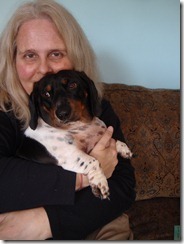 Chrystle Fiedler is the author of DEATH DROPS: A NATURAL REMEDIES MYSTERY (Gallery Books/Simon and Schuster) which will be published on February 21st 2012. I'm also the author of the non-fiction title THE COMPLETE IDIOT'S GUIDE TO NATURAL REMEDIES (Alpha, 2009), co-author of BEAT SUGAR ADDICTION NOW! (Fairwinds Press, 2010), currently in its fourth printing, the BEAT SUGAR ADDICTION NOW! COOKBOOK (Fairwinds Press, 2012) and THE COUNTRY ALMANAC OF HOME REMEDIES (Fairwinds, 2011). Chrystle's magazine articles featuring natural remedies have appeared in many national publications including Better Homes and Gardens, Natural Health, Vegetarian Times and Remedy.
Chrystle Fiedler is the author of DEATH DROPS: A NATURAL REMEDIES MYSTERY (Gallery Books/Simon and Schuster) which will be published on February 21st 2012. I'm also the author of the non-fiction title THE COMPLETE IDIOT'S GUIDE TO NATURAL REMEDIES (Alpha, 2009), co-author of BEAT SUGAR ADDICTION NOW! (Fairwinds Press, 2010), currently in its fourth printing, the BEAT SUGAR ADDICTION NOW! COOKBOOK (Fairwinds Press, 2012) and THE COUNTRY ALMANAC OF HOME REMEDIES (Fairwinds, 2011). Chrystle's magazine articles featuring natural remedies have appeared in many national publications including Better Homes and Gardens, Natural Health, Vegetarian Times and Remedy.
February 14, 2012
Love Means Never Having to Say You're Sorry (to Your Characters)
by Elizabeth S. Craig, @elizabethscraig
 Happy Valentine's Day, everyone! Today I'm over at the Southern Writer's Magazine blog with a post on torturing our characters…for their own good.
Happy Valentine's Day, everyone! Today I'm over at the Southern Writer's Magazine blog with a post on torturing our characters…for their own good.
Hope you'll be able to pop by. Have a great Valentine's Day!
February 12, 2012
Keeping in Touch with Readers
by Elizabeth S. Craig, @elizabethscraig
[image error]Hope you'll join me today over at A Good Blog is Hard to Find.
I'm on the rotation for this blog of Southern-US writers and my topic today is keeping in touch with our readers (or future readers)—why it's important and basic ways to open up the lines of communication.
February 11, 2012
Twitterific
by Elizabeth S. Craig, @elizabethscraig
 Below are the writing-related links I tweeted last week.
Below are the writing-related links I tweeted last week.
The free Writer's Knowledge Base search engine, designed by software engineer and writer Mike Fleming, makes all these links (now over 12,000) searchable. The WKB recently celebrated its one-year anniversary.
 Sign up for the free monthly WKB newsletter for the web's best links and interviews:http://bit.ly/gx7hg1
Sign up for the free monthly WKB newsletter for the web's best links and interviews:http://bit.ly/gx7hg1
Midpoint, & Second, Third Plot Points: http://bit.ly/xc2rUE @rebeccaberto
New Facebook data: Be topical, ask questions, and tell jokes to win audience: http://bit.ly/wbWvJz @niemanlab
The problem with using dialogue to dump backstory: http://bit.ly/zq7T5e @theresastevens
A post with some guidance on copywriting rates: http://bit.ly/xSiUA0 @MichelleRafter
The importance of opening up a vein when we write: http://bit.ly/y1bIpJ @sarahahoyt
5 Attitudes Toward Publishing You Should Avoid: http://bit.ly/A8dBhd @JaneFriedman
The best writing advice you'll never get: http://bit.ly/yoB6GL @ejcop for @junglereds
Ebooks--are we still in the Stone Age? http://bit.ly/zc9QUR @jfbookman
When you want to stray from your current manuscript: http://bit.ly/zltXjj @Mommy_Authors
Art History Through Sci Fi-Colored Glasses: http://bit.ly/A51asf @IreneGallo
The importance of building readership and maintaining the relationship: http://bit.ly/y8PLqL @KristineRusch
Freelance Writing 101: Overcoming Where-do-I-begin-itis: http://bit.ly/AfyVr7 @krissybrady
Before and After: Reveal Character: http://bit.ly/xaOPxH
Why a Book Editor Becomes a Literary Agent: http://bit.ly/zInl2K @oliviasnaije
A checklist for novelists: http://bit.ly/z2VnHc
What Do You Love About Your Characters? http://bit.ly/Ao61Ow @mooderino
A checklist for self-publishing: http://bit.ly/xFYfba @goblinwriter
One Author's First Month in KDP Select: http://bit.ly/xFWiVk @victoriastrauss
When promoting, remember not to trivialize your story: http://bit.ly/zgWYfe @behlerpublish
Some agencies wanting a 15% commission on self-pubbed books? http://bit.ly/z9QmY9 @theresastevens
Outlining your novel: a method: http://bit.ly/xVtvQH
A scene checklist: http://bit.ly/wCdSwS @janice_hardy
The DNA of a Book's Beginning: http://bit.ly/Au2HnR @BretBallou
Desensitizing your inner censor: http://bit.ly/zSq1Kl @eMergentPublish
Top 5 Tips Writers Can Learn From Reality TV: http://bit.ly/Ak44Sm
4 ways your protagonist can learn the truth: http://bit.ly/wbw0Sq @jammer0501
Learning the Writing Craft--of Magicians, Wizards, and Apprenticeships: http://bit.ly/AdVxqW @gary_author for @jhansenwrites
Gaining Something From Fairy Tales and Mythology: http://bit.ly/AokIp3 @greyhausagency
25 Reasons Why Google Hates Your Blog: http://bit.ly/zELRrn @problogger
Self-Editing: Back to Basics, Part 2: http://bit.ly/xYEtz9 @authorandeditor for @DavidGaughran
Character Development: Fear: http://bit.ly/za3aHm @ava_jae
Seth Godin's thoughts on beating writer's block: http://bit.ly/wZiRJL
An agent with a reminder about keeping it professional on social media: http://bit.ly/yGeYEx @literaticat
Making time to write: http://bit.ly/AgkAUj
3 Steps to Freedom–Grab Hold of Your Brilliant Future: http://bit.ly/zsAlTs @KristenLambTX
Tips to Make Selling Your Fiction a Reality: http://bit.ly/zG8BN9 @robeagar
100 Words for Facial Expressions: http://bit.ly/wkDGqX @writing_tips
Novel Plotting Worksheets: http://bit.ly/zQVPuf @AnnieNeugebauer
How To Sell 130,000 Books Without A Publisher: http://bit.ly/xxwE8F @thecreativepenn
Wanting to have your book published? A beginner's guide: http://bit.ly/yIAlzW @janefriedman
Heightening the Tension and Emotion in Your Scenes: http://bit.ly/zGPrxF @janice_hardy
How 1 writer tripled her daily word count with Google+: http://bit.ly/AmgLVv @phoebenorth
How to Get Out of Your Own Way: The Secret to Becoming a Successful Writer: http://bit.ly/yRYTE3 @annerallen
7 Tools for Tracking Ebook Sales: http://bit.ly/xmmY03 @PYOEbooks
The empty world – is your novel eerily deserted? http://bit.ly/zTdp7e @dirtywhitecandy
Watermarking ebooks instead of using DRM: http://bit.ly/AEZDUx @matteoberlucchi
Create An Inner Dialogue Within your Hero, and Your Villain: http://bit.ly/xgaQbf @storyfix
10 Types of Wordplay: http://bit.ly/yfraBt @writing_tips
Why 1 writer hates grammar Nazis...but is one: http://bit.ly/xGX2Od @KMWeiland
Tips for instant networking: http://bit.ly/z5tnyD @MrBuzzFactor
YA writers--know today's schools: http://bit.ly/zInByQ @StevenPiziks
Tips for dealing with Sock-Puppet Cyber Bullies: http://bit.ly/z4Igjs
Gender Issues In Publishing. Using Initials As A Female Thriller Writer: http://bit.ly/xEuJey @thecreativepenn
When Your Critique Partner's Career is on the Move and Yours is Standing Still: http://bit.ly/AkUkdw @AdriennGiordano
All about pen names: http://bit.ly/A0rIhi @deanwesleysmith
All the links I shared on Twitter last week: htp://bit.ly/xbDL7L
Your Book Tour: Seize the Opportunity to be Memorable: http://bit.ly/y079W0 @RCchrps
About book tagging: http://bit.ly/wlv4Yk @judy_croome for @JFBookman
How to start building your platform: http://bit.ly/xEChjX @chrisbrogan
Writing a 1-2 punch at the end of your story (using a middle grade book as an example): http://bit.ly/xBWJbb @laurapauling
Handling changes in the publishing ind: http://bit.ly/xjg86m @ericavetsch
4 Ways to Find the Right Freelance Editor: http://bit.ly/AjjrTx @cslakin for @janefriedman
Crafting Your 90-Second Pitch: http://bit.ly/wnHLPK @marcykennedy
Think Backward to Write Meaningful Metaphors: http://bit.ly/wJCagX @serbaughman
A look at agents' quick impressions on queries: http://bit.ly/xUNBvt @sierragodfrey
'Social' media: What isn't in a name: http://bit.ly/wxpBAQ @PorterAnderson
Use strong nouns: http://bit.ly/yNY3lB @janice_hardy
Imagining Multiple Platforms: http://bit.ly/xWMnkO @Kid_Lit
Reverse Outlining: http://bit.ly/xvPWUQ @KMWeiland for @angelaackerman
Time for publishers to get (even more) social (a look at Google+): http://bit.ly/ywJr9t @thefuturebook
Using projection/anticipation to improve your manuscript: http://bit.ly/yVdPvg @juliettewade
Writing is More than the Writing: http://bit.ly/z2faOC @KristenLambTX
10 habits for a positive workshop experience: http://bit.ly/wTvXeD @CAMorganti
Links to help create a book trailer: http://bit.ly/ynyUwN
Truth is stranger than fiction--http://bit.ly/xvDrUV
Working with images for more emotion: http://bit.ly/AgJoT9
The Two Most Important Things About Writing a Book: http://bit.ly/Af42av @bookemdona
Exercising for writers: http://bit.ly/yhosps
Infringement, Fair Use and Derivative Works: http://bit.ly/AyMNtV @diymfa
How To Develop a Subplot: http://bit.ly/Ak7tuW @ClaireAshgrove for @roniloren
Tips for author photos: http://bit.ly/Ato5lb
Scene execution http://wp.me/p1WPf3-ag @rebeccaberto
Scriptwriting: The Power of the First and Last Image: http://bit.ly/zvLJZH @jacobkrueger
7 things 1 writer has learned from Stephen King: http://bit.ly/wivL7y @victoriamixon
What Can We Learn from JA Konrath's $140,000 E-Publishing Sales Month? http://bit.ly/ABGe1l @goblinwriter
The art of being an introvert creative (forced to cope with social media): http://bit.ly/ACPmyd @justinemusk
Why Every Entrepreneur Should Self-Publish a Book: http://tcrn.ch/AeTOIU @jaltucher for @techcrunch
Pros & cons of social media for writers: http://bit.ly/xuZus4 & http://bit.ly/yzJI0f @JulieBMack
Go to a Workshop? No Thanks: http://bit.ly/xtAzId @geardrops
No Website: The Biggest Mistake Most Writers Make: http://bit.ly/yWAMrL @seanplatt
Author anxiety: http://bit.ly/y6aCWO @Ravenrequiem13
What to Do When Your Writing's Worst Enemy Is You: http://bit.ly/yCDrcw @krissybrady
Effective openings for your book: http://bit.ly/zumf1Q
Superhero stories: Creative Ways to Use Supersenses: http://bit.ly/ygyuoB
A Quiz About Misplaced Modifiers: http://bit.ly/waxFaK @writing_tips
Setting: It's in the Details: http://bit.ly/wgyO8r @yaHighway
Author blogging 101--platforms: http://bit.ly/xjgGzZ @JFbookman
10 Tips to Avoid Clichés in Writing: http://bit.ly/wHBYzu
Narrative Tense—Right Now or Way Back Then: http://bit.ly/A5Uqlw @noveleditor
3 Numbers That Matter to Your Platform: http://bit.ly/xrd0uU @JaneFriedman
Drawing on Literary Traditions: "The Hunger Games" and "The Maze Runner" as Case Studies: http://bit.ly/z8dt2h
Pitching Is A Job Interview: http://bit.ly/xOAQ4k @greyhausagency
Will Only Those Who Shout the Loudest Be Heard? http://bit.ly/yrzmYH @JodyHedlund
DRM, "social DRM," and the madness of publishers: http://bit.ly/zctopB @doctorow
Never Enough Conflict: http://bit.ly/wNHz7t @mistymassey
Advantages of a small press: http://bit.ly/ykaGIc @aliciarasley for @HP4Writers
5 techniques for writing poetry: http://bit.ly/z93hoJ @writersdigest
Changes in the crime fiction genre: http://bit.ly/yR0aKZ @mkinberg
More changes in the crime fiction genre over the years: http://bit.ly/z62UYW @mkinberg
Writing and a busy life? 4 tips for making it work: http://bit.ly/zBJ66P @WomenWriters
Keys to a Reasonable Blog Schedule: http://bit.ly/xLsU3Z @EdieMelson
Ways to View Your Manuscript with Fresh Eyes http://bit.ly/yGkSu4 @CherylRWrites
Facebook danger, smutty & genre e-reading, library ebook lending update, ind. news & views from @Porter_Anderson: http://bit.ly/AqoK4O
Writing on the Ether's @Porter_Anderson features @AndrewRichard @RebeccaBricker @philipdsjones @ScottDAnthony http://bit.ly/AqoK4O
The Pacing Triad: http://bit.ly/zvkQT2
Facing (and Writing) the 2nd Novel: http://bit.ly/As5kaa @BTMargins
Prepare 5 articles when you submit 1: http://bit.ly/wU5oXn @GLeeBurgett
10 Tips for Submitting Short Stories: http://bit.ly/yTzLdi @writersdigest
Tips for a Successful Public Presentation: http://bit.ly/yjFH6d @WriteAngleBlog
Visible Plot Goal Gets a Twist: http://bit.ly/A5prhW @LiveWriteThrive
Chinese Element Personality Types for Writing: http://bit.ly/y1iCf5 @FaeRowen
An explanation of speculative fiction: http://bit.ly/y3faKc @theskypirate
Don't pick typefaces and sizes strictly "by the numbers": http://bit.ly/z0b1PZ @jfbookman
Differentiating Your Blog and Your Writing: http://bit.ly/y87DA9 @julien for @NinaAmir
50 Musical Terms Used in Nonmusical Senses: http://bit.ly/x419hC @writing_tips
The Fictional Family: No character is an island: http://bit.ly/yuspaQ
Preparing for a writers conference--the pitch: http://bit.ly/xALoJt @Bob_Mayer
Tortured Language – Discerning Ebook Rights in Ancient Publishing Contracts: http://bit.ly/yZEvQc @PassiveVoiceBlg
Forensic Evidence of Motive, Means, and Opportunity: http://bit.ly/w9mWDf @AuthorTomAdair
Research vs. Observation: http://bit.ly/wSGXGf @DonMaass
7 Book Marketing Tips for Writers: http://bit.ly/zFO0bZ
Don't hit your reader with repeated strong emotion in your book: http://bit.ly/xRkWWC @Kid_Lit
Top 10 Self-Editing Tips: http://bit.ly/zOjKzT @janice_hardy
The Secret to Writing a Standout Picture Book: http://bit.ly/zkQiRo @writersdigest
Author's Guild Argues That Amazon's Dominance Comes From Antitrust Laws: http://bit.ly/AcE3Yk @ebooknewser
Don't Even Think About Using First-Person Unless...: http://bit.ly/Aqz5Cx @KMWeiland
Who, Whom, and How to Misuse a Pronoun: http://bit.ly/y5Rc5m @write_practice
An agent critiques a query: http://bit.ly/wUxKXM @bookendsjessica
Authors need intent, reminds an agent: http://bit.ly/zACAhj @greyhausagency
How Choreography Helps a Scene: http://bit.ly/ylBkuH @RavenRequiem13
Why Some Book Buyers Are Increasingly Resistant To E-Readers: http://bit.ly/yVaA6Y @laurahazardowen
3 Ways Authors Can Use Pinterest Guilt Free: http://bit.ly/zF2UE2 @AuthorMedia
Worldbuilding--cities: http://bit.ly/zh1Se1 @JulietteWade
3 ways 1 writer judges contest entries: http://bit.ly/xP2utq @LadyGlamis
The fallacy of creative success: http://bit.ly/woAT5S @tannerc
Dig Up and Rebuild Writing Platforms: http://bit.ly/wTJKdT
Using Social Media Effectively: http://bit.ly/xhNibP @AnnetteLyon for @pegeditors
What's Good Controversy? http://bit.ly/xMSeY2 @Beth_Barany
Licensing vs. Work for Hire: http://bit.ly/wmYnao @DiYMFA
February 9, 2012
Thinking Like a Reader
by Elizabeth S. Craig, @elizabethscraig
 Sometimes I like to drive to uptown Charlotte to have lunch with my sister, who works up there. We usually go to the same few restaurants, so I was excited to see an article in the entertainment section of the newspaper that was all about lunch options in the city.
Sometimes I like to drive to uptown Charlotte to have lunch with my sister, who works up there. We usually go to the same few restaurants, so I was excited to see an article in the entertainment section of the newspaper that was all about lunch options in the city.
I was less excited when I saw that there was no mention of what the parking was like at these restaurants. Even when I pulled up the restaurants' websites, I frequently couldn't find mention of what the parking was like.
This is an area where parking can either be expensive or nonexistent. Some restaurants have their own lots. Some pay their diners' parking fee. But you want to know what you're getting into before you go over there. The restaurants and the newspaper weren't thinking like diners.
It's just as important for us to think like our readers. What questions could they have when they read our book?
Who are these people again? If you've got characters who have been offstage for a while, consider giving them an unobtrusive tag.
Who are these people again, part 2. If you've got characters with similar names (that either start with the same letter or sound alike—Sally and Molly for instance), consider changing them up for the sake of clarity.
What's happening here? Can readers follow your plot? Are there so many twists and turns that a reader might have to keep going back in your book to reread sections? If so, consider writing in some short explanation or reminders as to what's going on.
Why is this character suddenly acting like this? If you've got a character who previously seemed shy/easygoing/friendly/reserved and they suddenly start acting completely different to help the plot along, there needs to be a good explanation for the change (introduction of some backstory or a scene that shows the change).
This wouldn't happen in real life. We usually count on readers to suspend their disbelief sometimes. But repeatedly asking them to suspend it, or asking them to suspend it on something really big isn't going to work.
Why is this character being so stupid? It's frustrating when a character we like and respect does something dumb just to further the plot. Either think up sound reasons why the character would behave this way (they've been tricked, they think they're safe doing what they're doing, they believe they're meeting their friend in the creepy alleyway), or else figure out another way to get the plot where you want it to go.
Everything was so complicated—and it wrapped up a little too neatly. Either brainstorm alternate endings for your book…coming up with a list of as many as you can imagine (from the clever to the absurd) or consider leaving room for a sequel to the book.
What ended up happening to that subplot storyline? Did it fall through the cracks? Double-check for loose ends. Did you introduce anything that needs to be wrapped up?
I know what's going to happen next. This might be a good time to consider a plot twist…something unexpected to make the plot more complex or to add depth to a character.
This book is too intense/too goofy/too…. If the book seems too intense, can you write in some lighter moments? If the book is too campy, can you write in something that's more serious or thoughtful or sweet?
Nothing is happening in this book. I'm getting bored. Do you have too much exposition? Too many scenes without conflict of some kind? (Conflict can even be represented by two characters who rub each other the wrong way…it doesn't have to be something huge.) Too much description of setting? Did you lose your way in the middle of the book? Were you trying to bump up your word count and added too much flab (consider taking it out and writing in a solid subplot that can tie into the main plot.)
As a reader, what bugs you most? As a writer, do you try to read your manuscript as one of your readers would?
Writing and a Busy Life? 4Tips for Making it Work.
 I've written a guest post that's up today at the Books by Women blog . I've posted a few tips for meeting our writing goals while juggling everyday life (it's not always easy!)
I've written a guest post that's up today at the Books by Women blog . I've posted a few tips for meeting our writing goals while juggling everyday life (it's not always easy!)
Hope you'll come by and visit.
February 5, 2012
Tips for Author Photos
by Elizabeth S. Craig, @elizabethscraig
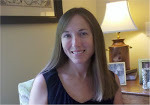 If you're a writer, you'll probably find a decent headshot of yourself useful.
If you're a writer, you'll probably find a decent headshot of yourself useful.
I'm asked for my picture for everything from guest blog posts to conference programs to books. And I use my picture daily for Twitter, blogging, and Facebook.
A headshot becomes part of our brand. Marketing ourselves instead of our individual books makes good sense for writers who publish more than once.
Like many of you, I'm not wild about having my picture taken. If I'm posing, I usually have a pained expression on my face. In fact, the last professional picture I had made, the photographer finally told me in disgust that she'd had an easier time taking pictures of the crying two-year old twins down the hall. :)
But in the past few years, I've picked up some tips for having these pictures made—both in a photography studio and out of it.
Tips for headshots--
If you go to a photography studio, make sure you use a photographer who will release the copyright for the pictures to you. Otherwise, you can't use them online or for an author photo. And then, really, what's the point?
At a studio, you'll want to ask for a "business photo.". If you ask for a headshot, they may think you need photos for a modeling portfolio.
You don't have to go to a studio for author photos. If you have a friend or family member who can take a good picture of you (or if you have photo editing software to touch up the picture), you could skip going to a pro.
Photographers usually recommend wearing solid colors and staying away from stark white if you're fair.
Black and white or color picture? I send a color photo to my publisher and figure that they can make the picture black and white if they want to.
Get both high resolution and low-resolution photos on a CD. Lower res works better online (for your blog, Facebook, and Twitter) and high res is needed for print.
If your headshot is for a book (as opposed to social media/promo), make sure you know the publisher's guidelines. Some won't want you resting your head on your hands, or looking off to the side.
If you're going to a studio, bring a change of clothes for a couple of different looks from the same sitting. You might also want to bring a comb or brush.
Studio business photos are not cost-prohibitive. I've had mine done a couple of times and they're run about $125, total.
If you go to a studio and sport the deer-in-the-headlights look, go to plan B. :) I had my daughter take the picture in my sidebar. I was a lot more relaxed, believe me. I just sent a copy to Penguin for the first quilting mystery that releases in June. My daughter was thrilled to sign the photographer release for the quilting mystery. Of course, when I was putting the release in an envelope, I realized she'd put little circles over her is instead of dots. This happens when you're ten. :) Might be a dead giveaway that I didn't use a pro!
Any other tips for photos? How do you manage to relax when having your picture taken (I could use the tips!)





